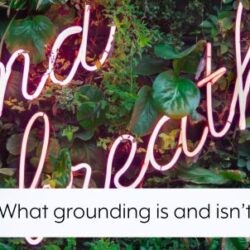
Today would have been my twentieth wedding anniversary. As it happens, instead, last week was the fifth anniversary of my divorce. This astonishes me: not that life didn’t work out as I had dreamed and planned it would. But that times goes so quickly, and that so much of what is important in the moment holds no significance at all years later.
Take, for example, the font for the Orders of Service at our wedding. I don’t remember now what the font was (all I can be sure of was that it was not Comic Sans), but I do remember the agonies of choice over it at the time. It seemed so important ‘with just three months to go’, as if the right font on the right coloured card with the right binding and the right words would predict my future happiness.
Such attention to detail often plays a role in our success or failure. People who know me well know that I pay a lot of attention to detail. Sometimes it’s my strength; sometimes it’s my frailty. Because those who succeed do so by paying attention to detail. They are exact and precise and diligent; they master their art; the devil is in the detail. A brain surgeon, a proofreader, a sculptor, a solicitor: their success lies in their ability to attend to detail and to do so diligently.
But it’s also true that people who struggle in life often do so because of attention to detail – because of a ruminating, self-critical, fear-and-shame-based obsession over detail. They are stymied by anxiety over minutiae that don’t matter. They fret over font size, and forget what they’re actually writing. In social settings they brood over every word and facial expression and emotion that was said and seen and felt, flagellating themselves for every detail of every wrongness of last night’s ‘friend or foe?’ encounter.
People who obsess over detail become grand masters of skill and wisdom and achievement, and people who obsess over detail become paralysed with fear and shame and inaction. The only difference is in knowing which details are worth obsessing over.
I see this in my life, for good and for ill. When I’m tired, when I’m stressed, when I’m outside my window of tolerance, my need to use exactly the right word even in a shallow social encounter can thwart my ability to connect well with others. I am distracted by detail. I am disturbed by detail. I am derailed by detail. But when I’m on my game, in the green zone, and I’m writing a book or a blog, my need to use exactly the right word drives me to higher standards of eloquence and emotional expression.
I have been learning, over many years, that we all have a writing part, and an editing part, and that never the twain should meet. When I’m writing, I need to write – and not obsess over the detail, of whether that was in fact just the right word, if its etymology was sufficiently apt, if the rhythm and rise and timbre of the sentence appropriately suits what I’m attempting to convey. I need to write what needs to be written, and not censor it out of existence. If I write and edit simultaneously, I write the same, perfect words – all four of them – over and over again. I need to segregate the two activities. Write now; edit later.
When I’m outside my window of tolerance, I get stuck in editing mode in life: the detail of everything that is wrong, and could be wrong, and will be wrong with me. I stop trying, for fear of failing. I assume that what I do will be wrong, and rubbish, and reckless, and I get writer’s block for life itself. But when I’m feeling fundamentally safe and settled, in the green zone, in my front brain, I write life forwards, letting it spill onto the page, knowing that I can splurge now and refine after. I don’t edit and critique myself while I’m living. I give it my best shot and later, in bed on my own, I edit my experience together – but I don’t let it stop me living and trying and risking and doing in the moment. Editing matters, but only once you’ve written. This is my permanent battle.
When I was engaged to be married, I obsessed over too many details. The colour of the card, the size and swirl of the font, are irrelevant now. My ‘big day’ was not spoilt by the wind, despite 73 photos of my dress perpendicular to the grass. Twenty years later, the worry over fonts and photographs was of futile insignificance – enjoyable perhaps in the moment (I enjoyed choosing just the right font) – but not a detail that made any difference in the long run.
The detail of a book chapter matters; the detail of a note to the window cleaner does not. The detail of a ‘with sympathy’ card matters; the detail of what someone said on Facebook does not. The detail of compassionate self-talk matters; the detail of all the reasons for our erroneous self-hatred does not.
What are the details that you are obsessing over today that really won’t make a jot of difference in twenty years’ time? And what in your life needs more attention to detail today so that in two decades you will be a more skilled master of your art, and of the art of living?



2 Comments
This is such a beautifully honest and helpful post. Thank you, Carolyn. Thank you.
This is tremendously useful for my autistic clients. Many have ComplexPTSD and obsess over detail, becoming experts in their special interests whilst also suffering the inertia you describe.
Thank you for this and for the wonderful detail and clarity you include in all of your writing, visual diagrams and training.